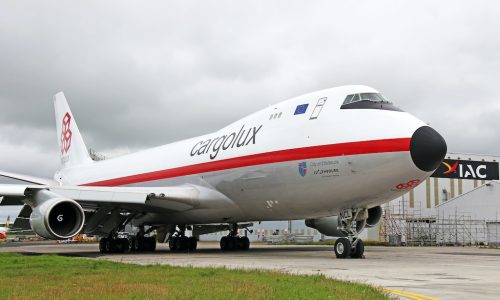Hungarian gateway Budapest Airport has welcomed Sichuan Airlines as a new airline to its cargo carrier roll call.
Inaugurating a route from its base in Chengdu, the regional airline of Western China will operate a three times weekly service facilitated by its fleet of A330-300 converted freighters.
Becoming the regional cargo operational hub in Central Eastern Europe (CEE) for its latest new airline partner sees Budapest now operates 60 full freighter flights weekly with 14 cargo carriers.
The important expansion of the airport’s cargo connectivity represents Hungary’s capital city’s first regular cargo connection to Western China and the indication of significant growth between the two regions.
In addition to the boost of general cargo flows between the CEE and China, Budapest has an elevated focus on e-commerce with the new flight capacities bringing high value for both segments on the operation.
Budapest Airport witnessed another record year for cargo volume in 2022, handling 194,000 tonnes which represented a yearly 5.8% increase.
Continuing its long-term cargo success story, the airport has recorded 16,855 tonnes per month so far this year which denotes a 4.3% increase when compared to last year’s monthly average, 49.3% higher than in March 2019 (pre-COVID).
René Droese, Chief Development Officer, Budapest Airport, commented: “Budapest Airport remains highly committed to the continuation of its airfreight business development.
“As a result of the intense common work and excellent collaboration with our cargo partners and with our cargo community, the airport’s role as air cargo gateway in CEE, especially towards Asia including China, is growing fast.
“We are facing an increasing demand for new cargo routes and more capacity on the existing services.”
Said Peter Xu, Cargo Station Manager, Sichuan Airlines: “The new aerial connection supports the success of the air Silk Road, as part of the Belt and Road initiative, further strengthening the excellent trade relationship between Hungary and China.”
He added: “Sichuan Airlines’ cargo network offers integrated, customised and professional logistics services for both Hungarian and Chinese companies, and the new flight will surely become an important logistics channel for the export of high-quality Hungarian goods to Chinese cities and vice versa.”
Supporting the future of Budapest’s cargo evolution, the airport has invested another €30m in the expansion of BUD Cargo City, increasing the airport’s annual cargo capacity to 300,000 tonnes.
With works set to be completed by Q4 this year, the transformation of the airport’s facilities will include an additional 6,500 sq m handling warehouse with offices and supporting amenities, while the apron will see the addition of two further Code F stands, taking the total to four.

